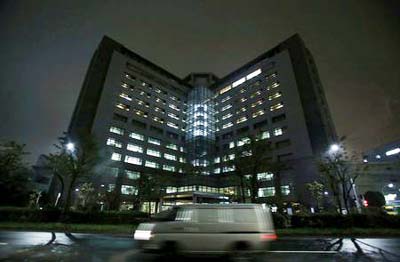
Reuters, Tokyo :
Japan will limit asylum seekers’ right to work from Monday, making changes to its refugee system that are likely to swell the numbers of those in detention centers, the justice ministry said, prompting refugee groups to flag humanitarian concerns.
The move to tighten one of the developed world’s toughest refugee systems, which accepted just ten during the period from January to September last year, is a bid to clamp down on what Japan views as a system of back-door immigration.
From Monday, the right to work is to be limited only to those Japan regards as bonafide refugees, while repeat applicants and those failing initial checks will be held in detention centers after their permission to stay in Japan expires, the justice ministry said.
“We want to focus on responding appropriately to refugees that need protection,” Justice Minister Yoko Kamikawa told a news conference on Friday, adding that the changes do not mean the government will be reluctant to accept refugees.
Asylum seekers with valid visas now receive renewable permits to work in Japan while their refugee claims are reviewed – a system the government says has spurred people to seek asylum as a means of finding jobs.
With its shrinking population and high barriers to blue-collar immigration, Japan is grappling with the tightest labor demand in decades.
This has spawned a “gray” labor market, in which worker-strapped companies hire asylum seekers to make up the numbers, Reuters’ investigations have found.
The number of asylum seekers in Japan has risen steadily in recent years to a record, with more than 14,000 applicants between January and September last year, an increase of almost 80 percent from the year earlier period, ministry data shows.
About 60 percent of those asylum seekers would not qualify for work permits under the new system, said justice ministry official Tetsuya Hagioka, who oversees the refugee system. The changes, which could lead to more detentions, will affect only those who seek asylum after Monday, Hagioka said, adding that current holders of work permits can continue working while their claims are reviewed.
Japan’s immigration detention centers held 417,383 people in 2016, the latest year for which data is available. The figure includes those detained more than once during the year, however.
Japan will limit asylum seekers’ right to work from Monday, making changes to its refugee system that are likely to swell the numbers of those in detention centers, the justice ministry said, prompting refugee groups to flag humanitarian concerns.
The move to tighten one of the developed world’s toughest refugee systems, which accepted just ten during the period from January to September last year, is a bid to clamp down on what Japan views as a system of back-door immigration.
From Monday, the right to work is to be limited only to those Japan regards as bonafide refugees, while repeat applicants and those failing initial checks will be held in detention centers after their permission to stay in Japan expires, the justice ministry said.
“We want to focus on responding appropriately to refugees that need protection,” Justice Minister Yoko Kamikawa told a news conference on Friday, adding that the changes do not mean the government will be reluctant to accept refugees.
Asylum seekers with valid visas now receive renewable permits to work in Japan while their refugee claims are reviewed – a system the government says has spurred people to seek asylum as a means of finding jobs.
With its shrinking population and high barriers to blue-collar immigration, Japan is grappling with the tightest labor demand in decades.
This has spawned a “gray” labor market, in which worker-strapped companies hire asylum seekers to make up the numbers, Reuters’ investigations have found.
The number of asylum seekers in Japan has risen steadily in recent years to a record, with more than 14,000 applicants between January and September last year, an increase of almost 80 percent from the year earlier period, ministry data shows.
About 60 percent of those asylum seekers would not qualify for work permits under the new system, said justice ministry official Tetsuya Hagioka, who oversees the refugee system. The changes, which could lead to more detentions, will affect only those who seek asylum after Monday, Hagioka said, adding that current holders of work permits can continue working while their claims are reviewed.
Japan’s immigration detention centers held 417,383 people in 2016, the latest year for which data is available. The figure includes those detained more than once during the year, however.

